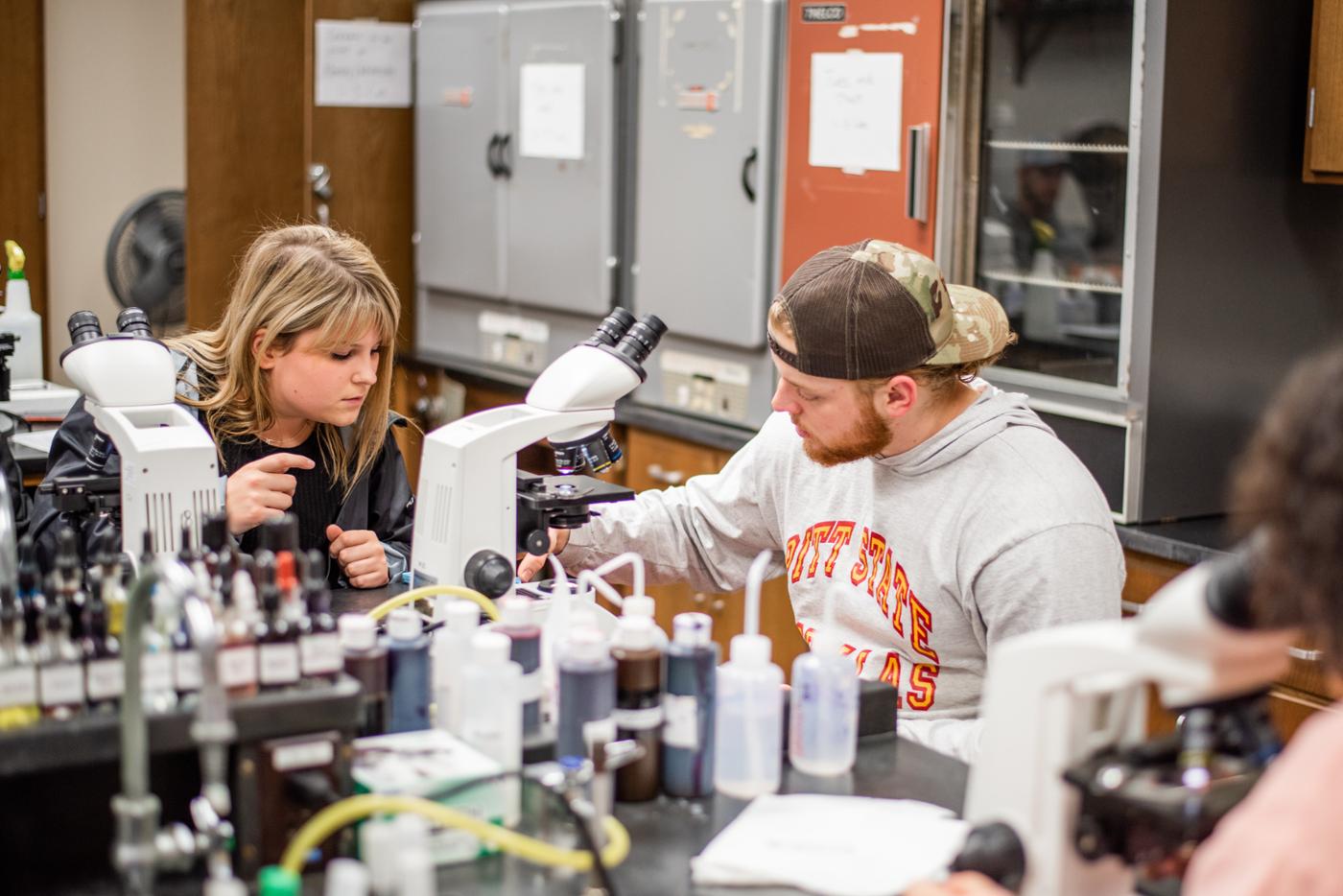Biology Major
Whether you have a passion for research, environmental science, health care, or education, our Biology major provides a solid foundation for a successful career.Pre-Professional Programs
Prepare for admission to professional schools in medical, dental, veterinary medicine, optometry, chiropractic, physical therapy, and physician assistant.
Field Biology Emphases
Our Biology program has several emphasis tracks focusing on the natural world, from plants to wildlife. Coursework activities include species identification, habitat assessment, biodiversity surveys, population monitoring, and ecological research.
Research
Work in a laboratory conducting breakthrough research or performing life-saving tests. The K-INBRE program provides support and resources to undergraduate and graduate students, faculty, and researchers engaging in biomedical research across the state of Kansas.
Education
Would you rather be in front of a classroom than in a lab? Become a Biology educator to develop curriculum and engage students. Pitt State Biology students in the Biology Education emphasis track have a 100% employment rate.
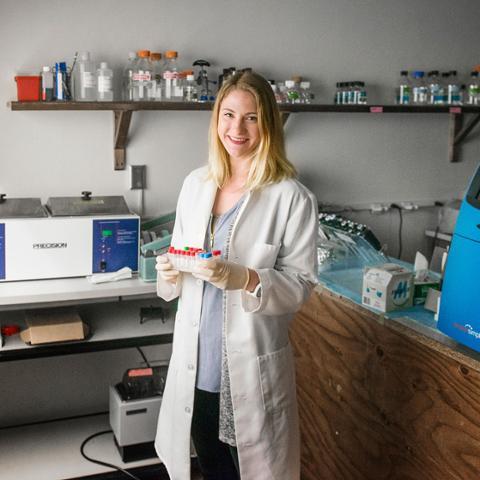
Work in university labs or research institutions like K-INBRE. Students assist with data collection and analysis, laboratory techniques, and literature reviews.
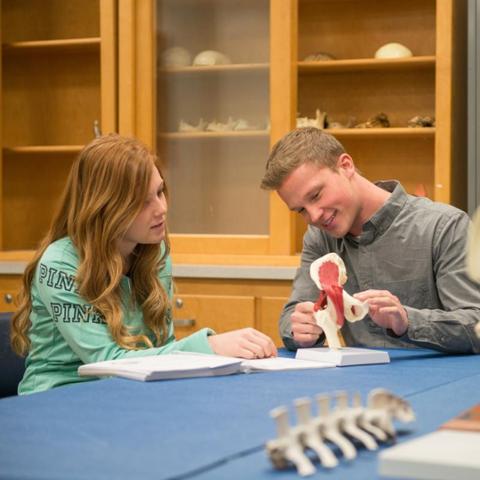
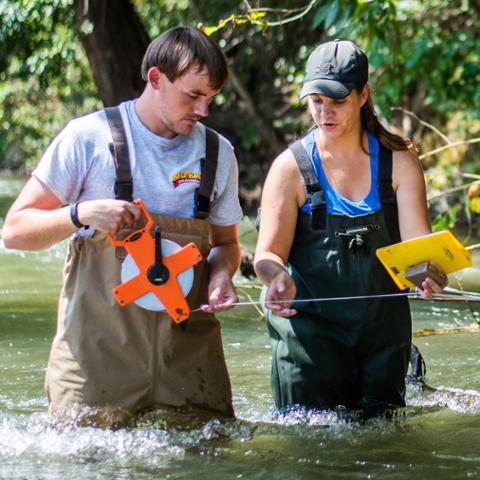
Directly observe and interact with living organisms and area ecosystems. On trips across the region, the state, and beyond, collect data, conduct experiments, or complete field-based projects.
Industry Partnerships: Connections to Make You Career Ready
Our network of biology alumni offer career guidance and internship opportunities to help you transition smoothly from the classroom to the professional world.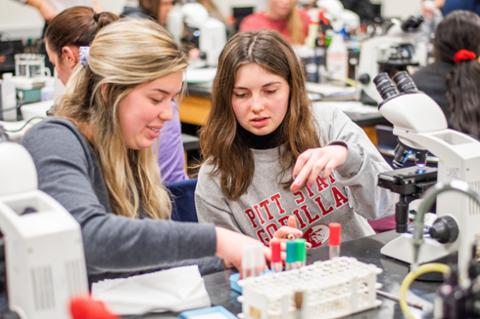
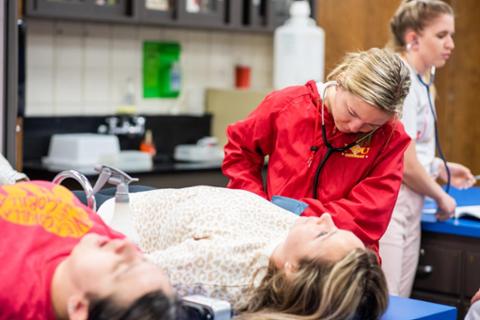
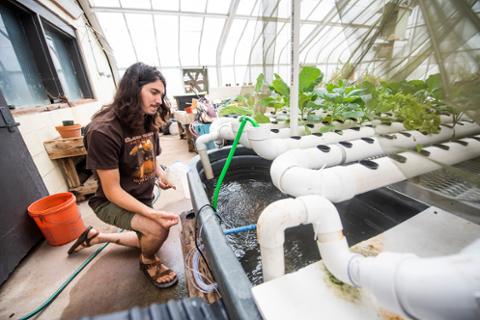
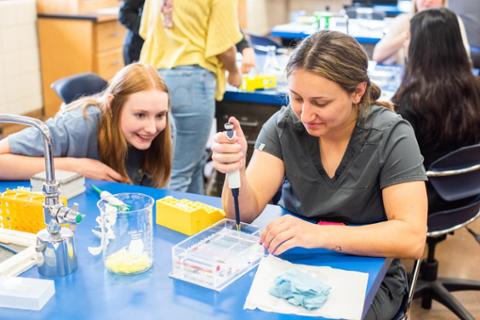
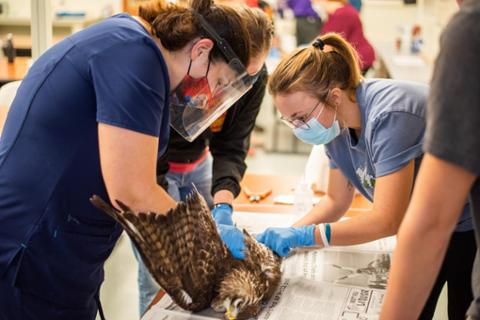
year partnership program with KCU medical and dental school
million dollars in biology department grant funding
plants, mammals, and reptiles specimens collected
professional development clubs including biology club, pre-med club, and wildlife and fisheries society
Biology Careers
A Bachelor of Science (BS) degree in Biology can open up a wide range of career opportunities across various industries. Pitt State graduates are prepared to hold positions in:
- Research
- Health Care
- Animal Care
- Environmental Management and Conservation
- Education at the 6-12 and University Levels
- Education at Science Museums, Aquariums, Zoos, Parks, and Nature Centers
- Biotechnology
- Forensic Science
- Politics and Policy
Some careers in biology require additional education or specialized training. We have a proven track record of our alumni being accepted into leading medical schools and professional programs.
Emphases available
Explore the foundations of life with our General Biology degree emphasis. Study diverse biological systems and prepare for careers in research, healthcare, or education.
Gain essential skills and fast-track your way to medical school or healthcare professions.
Learn how to provide diagnostic, therapeutic, and preventive healthcare services, as delegated by a physician. This pre-professional program covers topics in biology, chemistry and physics to advance to PA school. This program is a steppingstone to becoming Physician Assistant Certified (pa-c).
Train to help restore function, improve mobility, relieve pain, and prevent or limit permanent physical disabilities of patients with injuries or disease. This pre-professional program will give you broad-based science knowledge to advance into graduate school and earn your physical therapy degree.
Gain knowledge in anatomy and physiology to advance to a graduate-level program. Earn your undergrad degree with the future set to specialize in medical, dental, vet, optometry, and chiropractic.
Advance your teaching career with a Biology Education emphasis. Develop knowledge in biology and pedagogy to inspire the next generation of scientists.
Dive deep into the inner workings of living organisms. Student study DNA, proteins, and cellular processes at the molecular level. Contribute to scientific advancements in medicine and biotechnologies.
Investigate ecology, determining the relationships between organisms and their environment. Students collect data through fieldwork by surveying, observing, trapping, and sampling.
Obtain accurate and reliable lab test results. Students perform a wide range of tests on patient samples, such as blood, urine, and tissue to aid in the detection, monitoring, and treatment of diseases.
Preserve wildlife populations and their habitats. Students master techniques in species identification, data collection, and sustainable management practices.
Examine their interactions and roles within the aquatic food web. Focus on freshwater ecosystems, including fish, invertebrates, algae, and aquatic plants. Gain management strategies to benefit conservation efforts.
Explore the vital role of plants in our ecosystem. Students gain technical skills in plant research, conservation, or environmental science.
